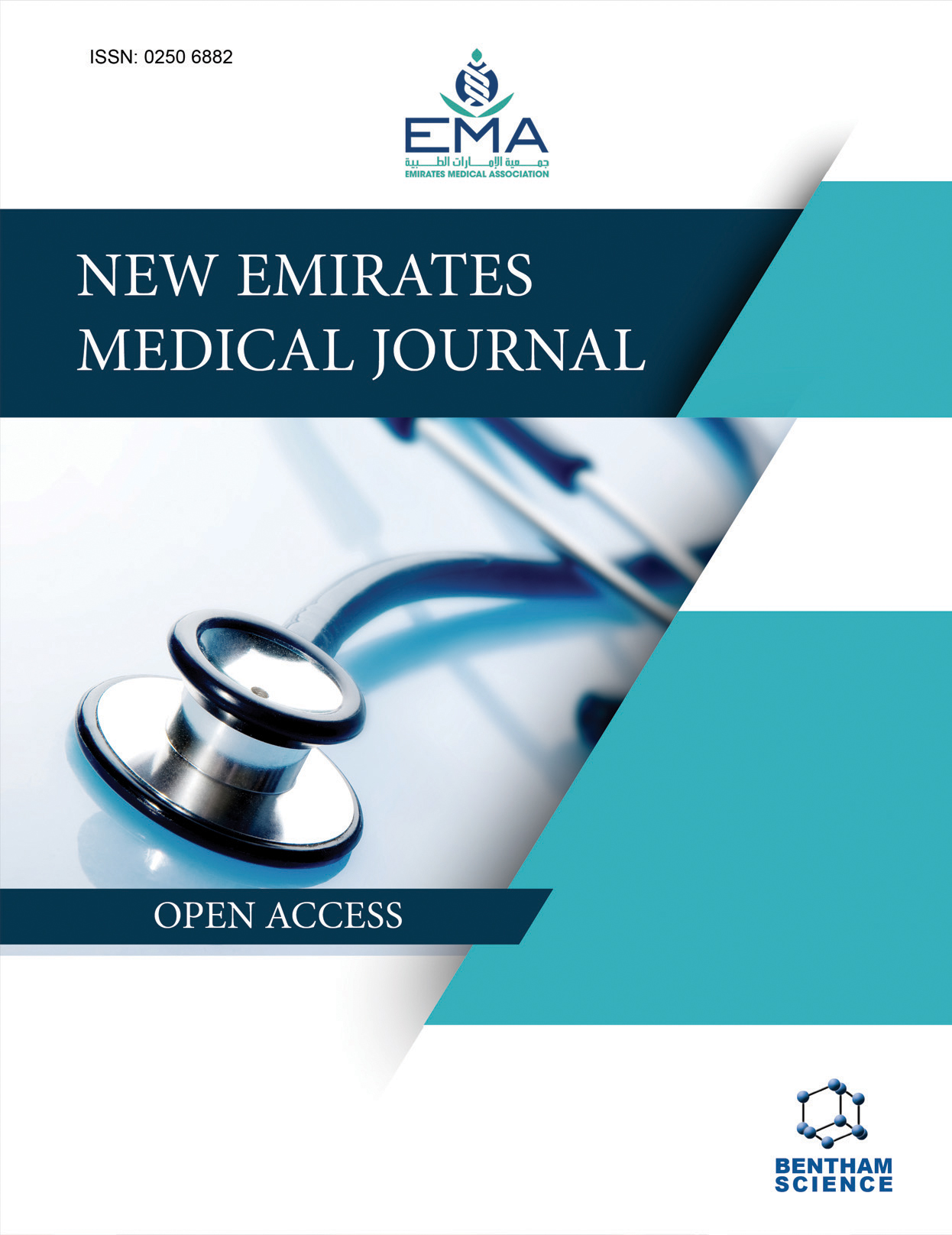-
oa Bronchiolitis in Infants and Children before the Surge of COVID-19: Predictors of Outcome and Length of Stay
- Source: New Emirates Medical Journal, Volume 5, Issue 1, Jan 2024, e02506882270086
-
- 09 Oct 2023
- 28 Nov 2023
- 01 Jan 2024
Abstract
Despite the available clinical practice guidelines, many management decisions in bronchiolitis are made subjectively, resulting in variable length of stay and unplanned ICU admissions. We hypothesized that certain independent predictors would affect the length of stay (LOS) and care escalation.
To identify predictors for increased LOS and ICU admissions in acute bronchiolitis.
We conducted a retrospective descriptive cohort study involving 589 children admitted to MZH with acute bronchiolitis in 2 years. Predictors evaluated were age, gender, family history of asthma, prematurity, fever, hypoxemia, comorbidities, RSV, and medications (salbutamol, steroids, and antibiotics).
Acute bronchiolitis comprised 18.61% of Pediatric admissions and 6.2% of total hospital admissions. The mean age is 8.28±6.1(2-36 months); 83% were infants, 39.2% were girls, 15% were preterm, and 25.1% had a family history of asthma. Despite 84.2% having X-rays, significant findings were present in 21.3%. RSV positive 26.3%. The mean LOS was 3.6±1.6 (2-11 days).
Age less than 2 months(P=0.029 OR=1.8, CI1.1 - 3.3), family history of asthma (P=0.03 OR=1.8, CI1.14 - 2.9), hypoxemia on admission (P<0.001 OR=3, CI1.8 - 4.9), presence of comorbidity (P=0.012), and significant radiographic findings (P<0.002, OR=2.7, CI1.6 - 4.6) were predictors of longer LOS. Prematurity (P<0.001, OR 8.8, CI 2.7-28.4), RSV bronchiolitis (P<0.002, OR=3.02, CI=1.5 – 6.03), and hypoxemia on admission (P< 0.042 OR=4.6, CI1.1 - 14.9) qualified as independent predictors for escalated care.
RSV bronchiolitis, especially in preterm infants, may prompt a low threshold for admission and escalating the care. Evidence-based treatments, early respiratory support, and treatment of comorbidities help to achieve the optimal LOS.


